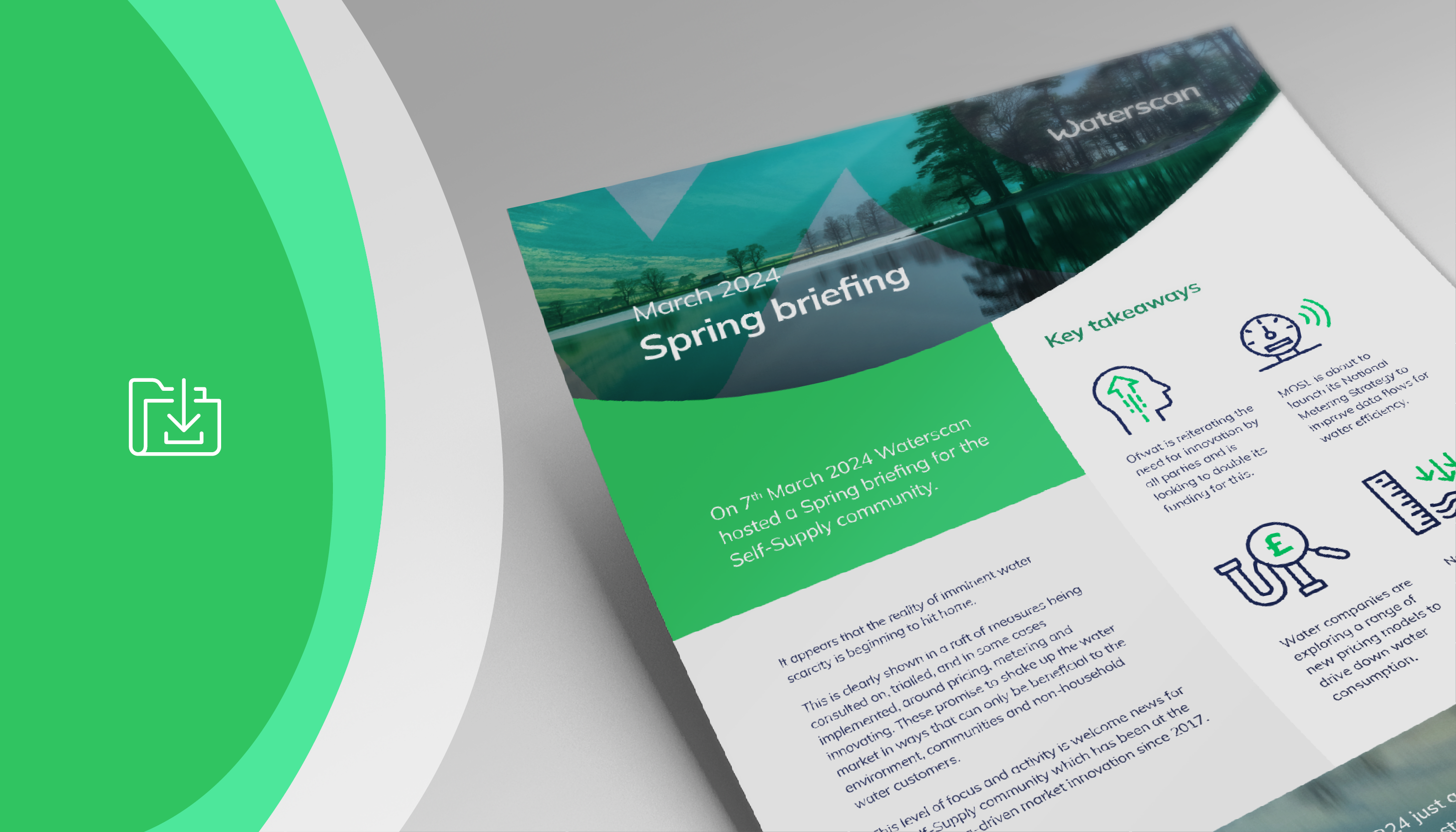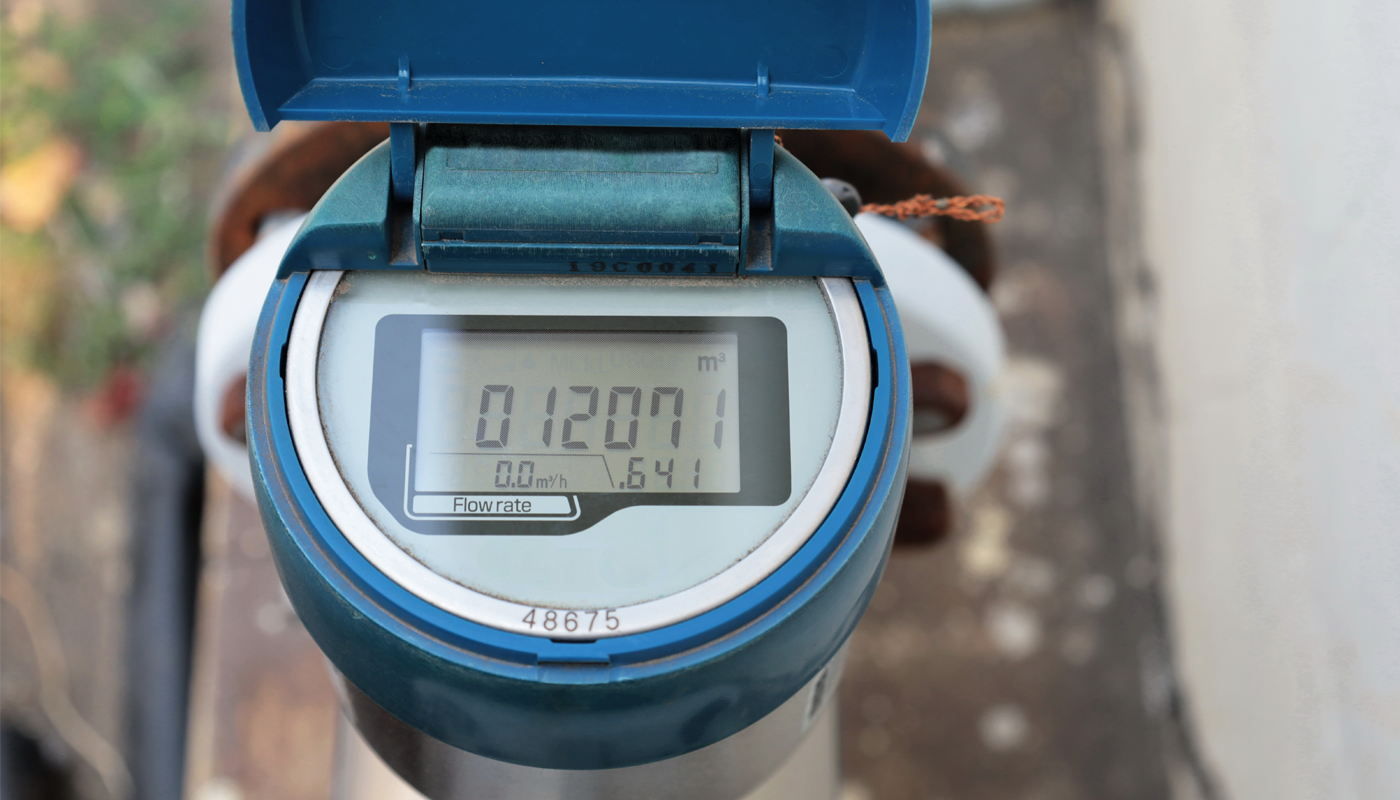It might not be immediately obvious, but there are a lot of greenhouse gases tied up in water.
The movement and treatment of water is an energy intensive process, creating 3 million tonnes of greenhouse gas emissions each year (about a third of the UK’s greenhouse gases are from industrial and waste management processes). There’s no sign of this decreasing either, especially since some initiatives to tackle climate change on one hand, actually have an adverse effect on others. For example, the development of a hydrogen economy will demand access to higher water supplies, which, directly and negatively impacts greenhouse gas generation.

This is why, in 2020, the water industry was the first sector in the UK to commit to achieving net zero carbon emissions by 2030, twenty years ahead of the 2050 target that the government has set for the country as a whole. The sector has made considerable progress to reduce gross operational emissions, achieving a 43% reduction between 2011 and 2018 alone.
What’s particularly interesting about the industry-wide net zero target is that all trading parties – retailers and wholesalers – are pulling together to achieve it. It is a shared commitment, even though their individual contributions to the emission problem differ considerably from area to area, company to company. Often, these variances are outside of their control for reasons like population density generating greater demand, or the natural terrain requiring complex network asset mapping. Hence, the collaborative net zero effort will require each company to implement different carbon saving measures and solutions based on their own specific strengths and weaknesses. Importantly, each will be held to account by regulator Ofwat to ensure they stay on course.
What’s important now is that the water sector shares its learnings with the businesses they serve, to help them achieve their own net zero milestones and commitments.
“Impacts of climate change will most immediately and acutely be expressed through water”
Global commission on adaptation
According to research cited by Forbes, making water efficiencies could collectively cut greenhouse gas emissions by 12 million tonnes over the next eight years.
The companies that Waterscan works with recognise that good water stewardship can accelerate progress towards net zero, but many organisations may not. Yet, water efficiency’s direct link to carbon reduction makes a compelling business case for action, a 2 for 1 if you like. With the UN predicting that there will be a 40% shortfall in water resources by 2030, it comes as no surprise that there has been a wave of water net zero pledges by a wide array of businesses. Indeed, some companies are going one step further, exploring the concept of what water net-positive looks like.
Whilst water and carbon are intertwined, it’s important to note that strategies for carbon reduction and water reduction must be considered independently. There are two reasons for this.
Firstly, we must consider the role that water can play now and in the future. Access to water is vital in enabling us to live with the global warming that has already occurred. Furthermore, temperatures will remain elevated for many centuries, even if rates of global warming can be slowed. Effective water stewardship strategies are therefore already vital to mitigate the effects of climate change on water resources that have already happened and will continue to happen, including loss of biodiversity.
Secondly, we must consider local versus global. While carbon emissions are generated locally, their impacts cannot be contained and are experienced across the world. It follows that efforts to reduce carbon may take place locally but have a global impact. Water, on the other hand, must be considered in local contexts, acknowledging that water deficits are felt in the immediate vicinity, and that solutions must be localised too.
The Spring financial year-end will roll round quickly for many companies now, and with this, often a requirement to report progress on sustainability measures. If your company’s progress towards net zero has slowed, it’s time to start looking into water. It may not be the most obvious route, but once you’ve got full visibility of water consumption across your business, finding a pathway to greater efficiency becomes clearer and more achievable – and with this, positive impacts on your carbon emissions.
UK Forecasts
- Restriction due to drought is twice as likely between 2020-2050 compared to 1997-2004.
- By 2045, water supply will decrease by 7% as a result of climate change and abstraction limitation.
- By 2050, an extra 4 billion litres of water (25% of current volume) will be needed each day.
- By 2050, our rivers may have 80% less water in summer months.
- 10% of freshwater and wetland species are at risk of extinction due to water pollution.
- Already, pollution is such that no river in England can be given a clean bill of health.




